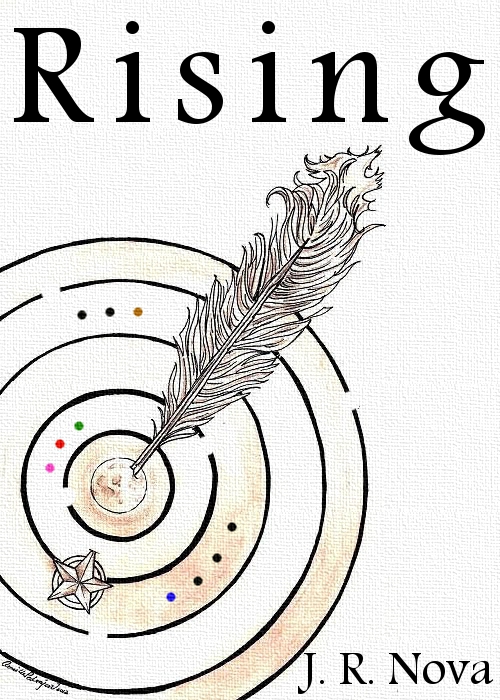If I write too much I'm liable to say something I shouldn't. With brevity I simplify my story and create clarity. Overwriting destroys clarity. I cannot emphasize this enough. When writers leave too many words and ideas on the page, it creates an unmanageable mess for the reader.
I'm from the Hemingway/Strunk school of thought. Clarity is necessary for the reader to understand the writing. Clarity doesn't come from prose riddled with nouns and adjectives—fancy writing. Clarity is a product of brevity. Less writing is often better story.
How can a writer screw up a non-poetic descriptive passage?
First Version: “Frank walked into the room. On the far side was a fireplace constructed of rounded river stones. The stones grew from the base of the floor to the high ceiling. Frank knew the secret plans were hidden within the chimney.”
That may be a boring passage, but it works! Problems start when flowery language is introduced to the description. Not only is this language unnecessary, but it's counterproductive to the writer's sole purpose: to help the reader understand, envision, and be part of the scene.
Second Version: “Frank walked slowly into the room, carrying his blue raincoat over his shoulder, his soggy shoes leaving moisture across the floor. His prints were puddles and he cringed at the thought of his Aunt Margaret finding him here. What would she say? What would she do to him? He looked at the fireplace, its eloquent finish and the many large, rounded stones forming its base and the stem of the chimney. It was a marvelous structure of nineteenth century architecture that only one of his great ancestors could think to build in the refined Victorian home. Somewhere inside the frame of the chimney was what Frank had come for, what he had risked the wrath of his Aunt to find. There were the plans.”
Easier, huh? In the first version I knew the plans were important. But in the second version I was still thinking about Aunt Margaret and Victorian homes by the time I got to the plans. The paragraph wasn't about the plans at all!
Here's an example of nonfiction, where it's even more important to write briefly:
~
What a mess that second version is. It's a winding path of nouns—of ideas, concepts forcing me to THINK about what I'm reading, instead of flowing with the passage. Long passages like this kill the flow and pace of a story, grinding it all to a near-halt as the reader struggles through.
What a mess that this second version is. It's a winding path of nouns—of ideas, concepts forcing me to THINK about what I'm reading, instead of flowing with the passage. Long passages like this kill the flow and pace of a story a story's pace, grinding it all to a near-halt as the reader struggles through.
What a mess this second version is. It's a winding path of nouns—of concepts forcing me to THINK about what I'm reading. Long passages like this kill a story's pace.
~
It's not always necessary or appropriate to give the reader the bare necessities. Sometimes overwriting serves a purpose.
Use poetic prose for contrast and emphasis. Foreshadow an object, idea, or character you'll use later in your story by spending a little more time on them in the beginning. Think of your writing as a film camera focusing in on a shot. The only way to make this effective is to write sparsely everywhere else. If every shot is a close up, who will know what is important and what isn't?
Good writing always places the reader first. Good writing is effectively to the point. Bad stories require overwriting to hide the plot, so the reader focuses on the pretty words and not the story itself. Overwriting serves as a distraction. A well-told story never requires flowery prose.
I say this not to convince you never to write poetically, but to warn you to do it sparingly. Put all that extra work into brainstorming a better story, and your readers will thank you.











It was very good. Both examples (the guy in the chimney and your own paragraph) were different and combined, easy to understand what you are saying.
ReplyDeleteIt's also worth noting that putting things clear and simple doesn't mean the writer thinks his audience is simple, and need things dumbed down; on the contrary, it shows absolute respect for readers who know what they want to read and want to read THAT, not over embellishments, not musings that are irrelevant. So good job, Nova. I say YOU are on the right track!
thank you, this was a much needed refresher. Brevity, less is more is something i need to remind myself often for I can be very descriptive with my writings.
ReplyDeleteWonderful post, Thank you. I need all the help I can get.
ReplyDeleteVery informative... really thanks 4 sharing it !!!
ReplyDeleteJR,
ReplyDeleteThis was a great post.... I think the poets on BlogNostics could really get a lot of info from this post...
xoxox
Jessica
very interesting blog friend...nice to discover u.
ReplyDeleteRohit
floating-expressions.blogspot.com
Splendid advice sir. Been reading lots of modern pulp fiction for example the levels and outpost and love the crisp fast paced storytelling.
ReplyDeleteWished you were my high school peer-editing buddy. :)
ReplyDeleteI think that's the best compliment I've ever received, thank you, whoever you are :P
ReplyDeleteFeel free to connect with me on Facebook or Google+
Great advice for everyone who writes. Thanks, J.R.!
ReplyDeleteBlessings!